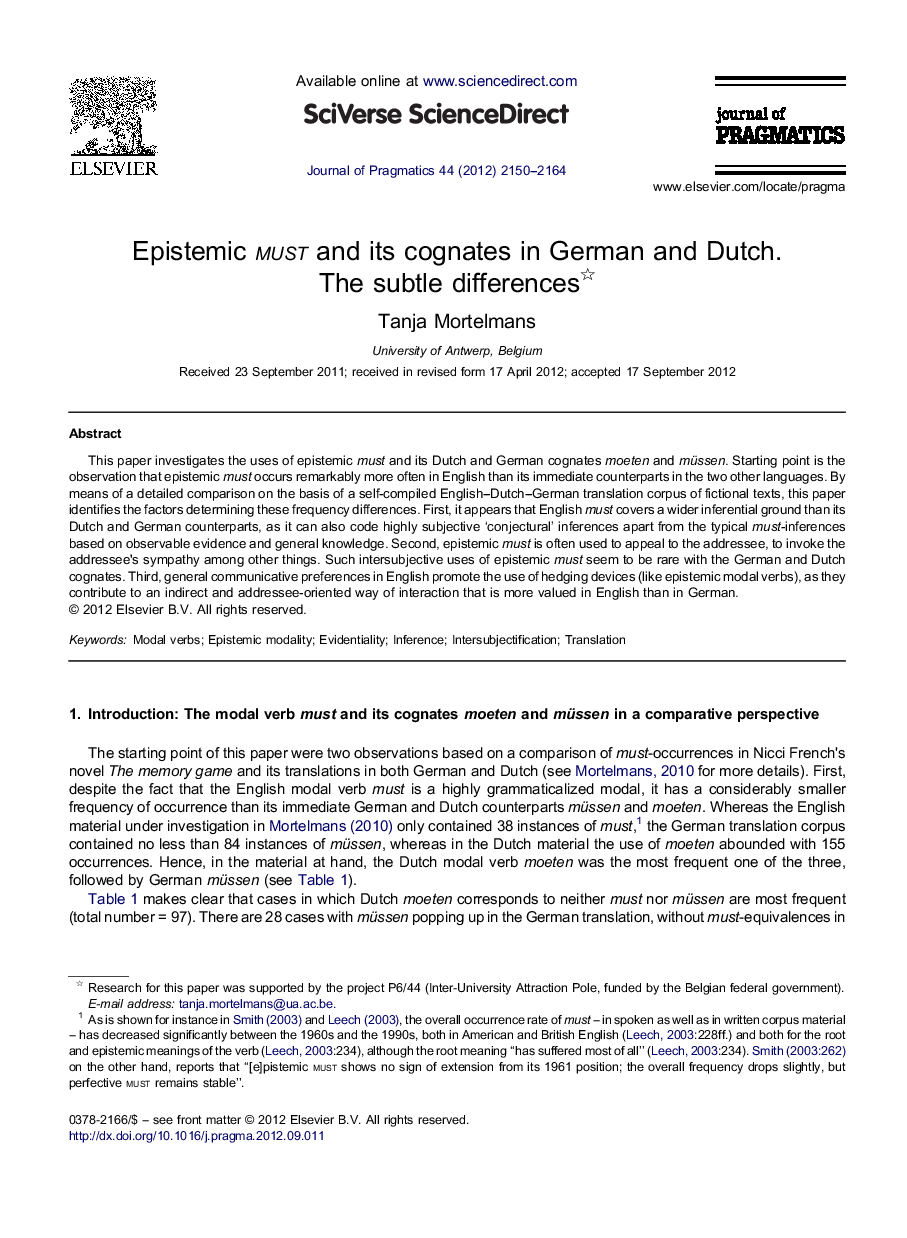| کد مقاله | کد نشریه | سال انتشار | مقاله انگلیسی | نسخه تمام متن |
|---|---|---|---|---|
| 933097 | 923321 | 2012 | 15 صفحه PDF | دانلود رایگان |

This paper investigates the uses of epistemic must and its Dutch and German cognates moeten and müssen. Starting point is the observation that epistemic must occurs remarkably more often in English than its immediate counterparts in the two other languages. By means of a detailed comparison on the basis of a self-compiled English–Dutch–German translation corpus of fictional texts, this paper identifies the factors determining these frequency differences. First, it appears that English must covers a wider inferential ground than its Dutch and German counterparts, as it can also code highly subjective ‘conjectural’ inferences apart from the typical must-inferences based on observable evidence and general knowledge. Second, epistemic must is often used to appeal to the addressee, to invoke the addressee's sympathy among other things. Such intersubjective uses of epistemic must seem to be rare with the German and Dutch cognates. Third, general communicative preferences in English promote the use of hedging devices (like epistemic modal verbs), as they contribute to an indirect and addressee-oriented way of interaction that is more valued in English than in German.
Journal: Journal of Pragmatics - Volume 44, Issue 15, December 2012, Pages 2150–2164